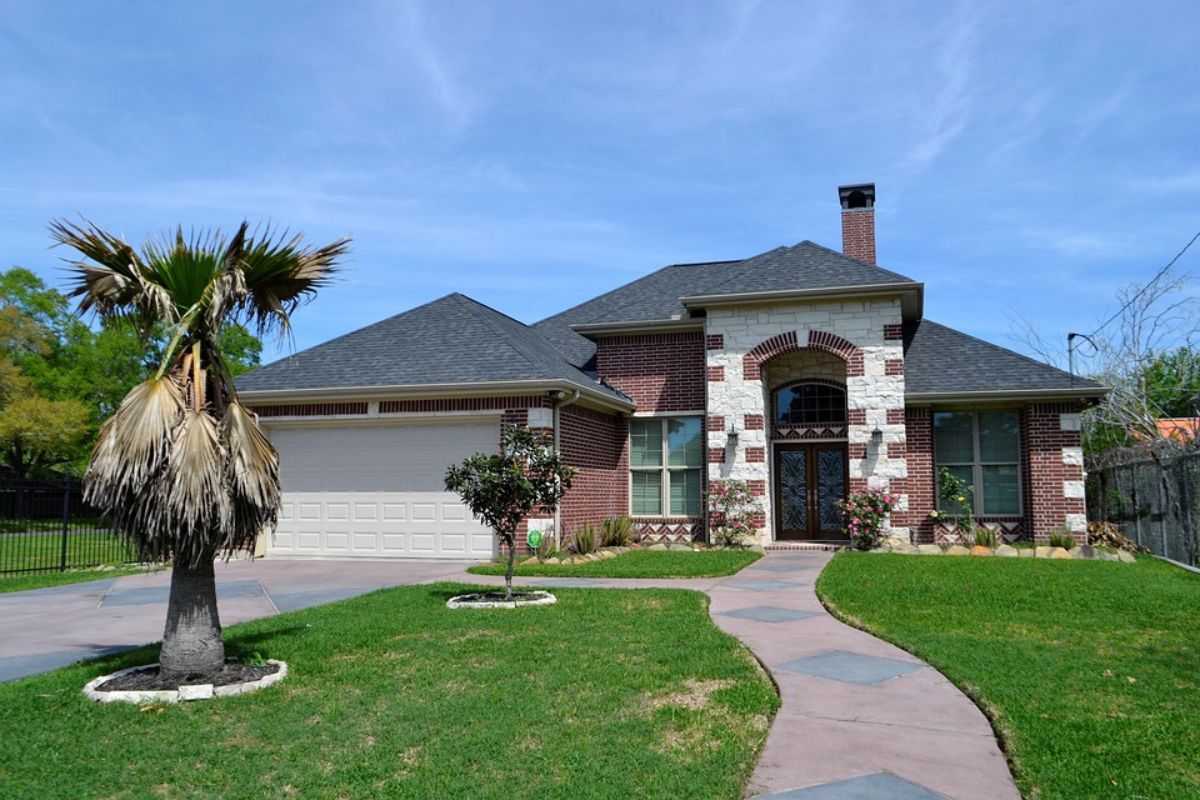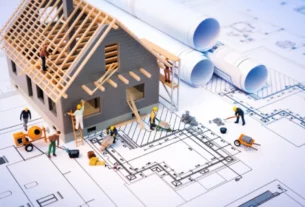Although they require little care, your property’s driveways occasionally require some attention. Resurfacing or replacing your driveway is a significant renovation project that can address deterioration and cracks. If you’re looking to make your house fit your sustainable lifestyle, consider using eco-friendly materials for your residential paving needs.
By opting for environmentally conscious choices, you can increase your driveway’s longevity without contributing to pollution. This means you won’t have to worry about frequent maintenance, and it can even enhance your home’s curb appeal.
1. Air Quality Is Improved by Choosing an Eco-Friendly Pavement:
Air pollution reduction is one of the advantages of eco-friendly paving that may be seen immediately. This occurs due to the unpleasant odors of many pavement products when heated by the sun. These chemicals then interact with airborne particles and sunlight to harm the environment. Additionally, carbon dioxide emissions are trapped under highways, causing global warming.
2. Recycled Concrete And Asphalt
The utilization of recycled asphalt and concrete is another green paving option. Although it doesn’t offer any advantages of sustainable pavement, the implementation method is significantly more environmentally friendly than using raw materials. The cost and environmental impact can be further reduced by recycling the asphalt or concrete from your existing road, parking lot, sidewalk, or fire lane and incorporating it into your new surface.
3. Compact Concrete
Although crushed concrete is not a natural resource, many homeowners swear by it when using it for driveways. Crushed concrete has the advantage of allowing water to discharge, which allows nutrients to enter the soil and produce carbon dioxide. Because you can obtain it from almost any demolition site, it is also incredibly sustainable. In essence, you’re utilizing material that would have been wasted. Materials from building foundations, sidewalks, and pavements are frequently used in crushed concrete. It can be used to make a driveway with a similar appearance to a typical concrete driveway but with a more porous quality.
4. Permeable Pavers
Permeable pavers are superb if you’re seeking the most environmentally friendly paving alternatives. They don’t need asphalt or concrete, and their manufacture requires far less machinery. Even further, organizations like Music paving ensure that only post-consumer recycled materials are used. Permeable pavers are plastic grids that are incredibly durable, made from recycled plastic, and designed to be filled in with gravel, mud, or grass.
Although more expensive, durable, and easier to install, these pavers are far more permeable than porous concrete. Plastic pavers are almost maintenance-free, in contrast to porous concrete or asphalt, which require regular care to stay porous. You could use Music paving for the most eco-friendly, green pavement options.
5. Natural Stone Pavers
You can add a more natural character on your driveway by utilising natural stone pavers. Natural stone can be purchased from quarries, which is more environmentally friendly because it produces less CO2.
You can frequently let water trickle between your natural stone pavers, soaking into the surrounding soil, depending on how you put up your pavers. Look through the various natural stone varieties to find one matching your style.
6. Lower Labor and Time Consumption
Eco-friendly paving solutions are quicker to set up, require less workforce and are simpler to install. Additionally, they take less work to maintain and clean.
7. Alternatives for Eco-Friendly Paving
Concrete grids with openings – Covering your driveway with an open grid will make it porous. This is perfect for those who wish to look natural and lessen their carbon footprint at home. Available concrete grids are ideal if you require assistance with water runoff during heavy rains or even snowfall in the winter. They aid in preventing problems with erosion and water drainage. Environmentally friendly asphalt includes recycled plastic and crushed stone as natural aggregates. The ultimate product is an ecologically sustainable driveway choice with all the advantages you seek, including strength, affordability, and longevity. Additionally, eco-friendly solutions are significantly less expensive.
8. Cold and warm mix asphalt
Asphalt is applied at lower temperatures using a warm and cold mix. This reduces the emission of greenhouse gases and the overall amount of fuel used to produce and lay the fuel. The advantages it has for the environment make it a suitable “green” alternative. The paving season can be extended in the colder northern regions since it can be laid in lower temperatures, which is why company owners prefer this, particularly in colder places.
Temperature Asphalt expands in hot weather and may have one or more of the following issues
Asphalt undergoes expansion with increasing temperature and contraction with decreasing temperature. Splits may develop in your pavement as a result of continuous expansion and contraction. Older pavement frequently has cracks, although poorly installed or maintained modern asphalt can also develop them.
In order for asphalt to mix with soil and aggregate, it needs cracks. Unfortunately, the combo wreaks further havoc when it descends into your pavement. Asphalt’s lighter and heavier oils undergo a chemical reaction due to UV radiation. As a result, the binding fats decrease, and your asphalt pavement’s structural stability deteriorates.
Ecological Responsibility Is A Priority, Not A Choice
Making a move to eco-friendly paving solutions has never been more crucial for company owners and residential homeowners alike, given the increased negative media attention given to global warming and pollution. Additionally to improving your reputation with clients and friends, acting in this manner will prevent you from breaking any prospective new rules or laws about the paving or installation of parking lots and other paved places.
Many options are available, but if asphalt or concrete isn’t essential, use permeable pavers like those that Music Paving provides. These pavers generate less waste during construction and offer drainage, erosion control, and other beneficial features to both you and Mother Nature. To talk about green paving choices, get in touch with a professional at music paving.




